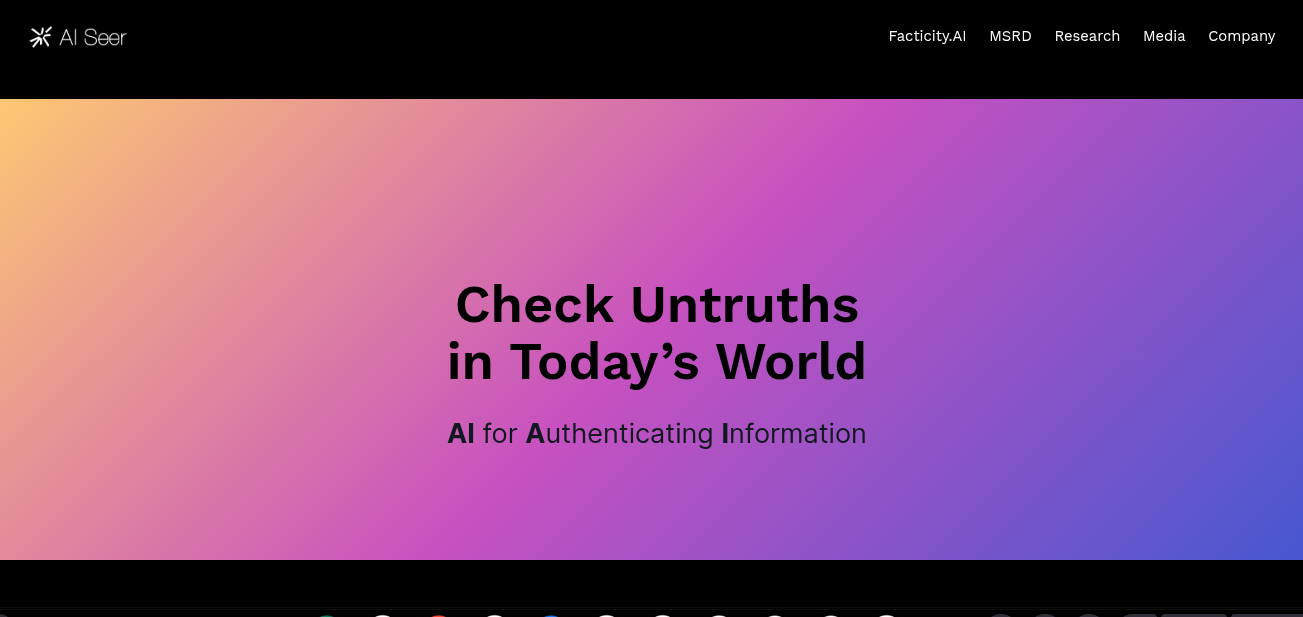Overview
AI Seer is an AI-driven platform dedicated to authenticating information in a world increasingly challenged by misinformation, disinformation, and malinformation. Their tools, such as Facticity.AI and MSRD technology, are designed to verify the truthfulness of text, audio, and video content in real-time. By blending advanced natural language processing (NLP), machine learning, and computer vision, AI Seer envisions a future where credibility and trust are safeguarded through a fusion of AI and human expertise.
Key Features
- Facticity.AI – AI Fact-Checking Tool: Analyzes text, audio, and video using advanced NLP and machine learning to cross-reference information against credible sources.
- MSRD System (Multimodal Stress Response Detection): Captures physiological indicators like respiration rate, heart rate, pupil dilation, and thermal changes to detect signs of stress, deception, or credibility.
- Real-Time Verification: Evaluates the factual accuracy of media content instantly, preventing the spread of misinformation before it gains traction.
- Non-Invasive Signal Capture: Uses computer vision algorithms to gather truth-indicating data without physical sensors or invasive methods.
- Future-Proof Trust Model: Combines human intelligence with artificial intelligence to create a more credible and trustworthy information ecosystem.
- Enterprise and Media Applications: Built for institutions, media houses, regulators, and public sector entities that need large-scale, real-time information authentication.
Pros
- Real-Time Analysis: Verifies information faster than manual fact-checking, helping institutions respond quickly to false narratives.
- Non-Invasive Verification: Captures credibility indicators without needing physical devices or intrusive tests.
- Multi-Format Support: Fact-checks not just written text but also audio and video content.
- Enhances Public Trust: Supports a future where media and public information channels can demonstrate credibility objectively.
- Enterprise-Grade Capability: Scales for institutions and large organizations managing high volumes of information.
Cons
- Focused on Large Entities: Primarily built for media organizations, regulators, and enterprises rather than individual consumers.
- Dependence on Data Quality: The accuracy of AI detection and fact-checking relies heavily on the availability of credible reference data.
- Ethical Considerations: Automated truth verification can raise concerns around bias, interpretation, and data privacy if not carefully managed.

